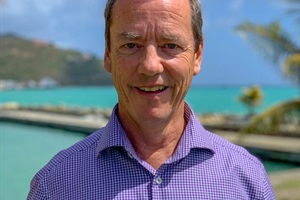International expert joins recovery team
Published on 29 May 2020

The Integrated Recovery Team, based in Whanganui, is benefiting from the expertise of an international recovery and infrastructure development expert, says Recovery Manager, Charlotte Almond.
She says, “We are extremely fortunate to have had Paul Bayly join us as a recovery advisor. Paul recently moved to Whanganui and has generously offered to share his expertise with us as we work alongside our community post-COVID-19.”
Paul Bayly has worked with the United Nations, across Southern and Eastern Africa as a UN specialist, and in Syria, Israel, Lebanon and East Timor as a military observer.
Following 16 years as Managing Director of Cranleigh, a merchant bank which he co-founded in 1996, with offices in New Zealand, Australia and Singapore, he had an international career in infrastructure advisory taking him to the United Kingdom, Australasia and the Pacific.
In recent years he has been deeply involved in recovery and development work following Category 5 cyclones and hurricanes in Fiji and the British Virgin Islands. He is an experienced leader in both a civilian and military setting, including being a retired Colonel in the New Zealand Army.
Paul Bayly says after an initial discussion with Mayor Hamish McDouall, Council Chief Executive, Kym Fell and the recovery managers, he was keen to work alongside the Integrated Recovery Team, which is working for the communities of Whanganui, South Ruapehu and Rangitikei.
“As we look to recover from this crisis, it is encouraging to see the team moving towards a highly integrated model. This means the district health board, the councils in our region, Te Ranga Tupua, the Whanganui civil defence team, Whanganui & Partners and multiple agencies are all working together and there is a very good understanding that the social, health and economic aspects of recovery will be highly inter-connected.”
“Along with that, I’m seeing a genuine commitment to working with people and communities in the ways that will work best for them. A community-led recovery is most likely to succeed in the long-term.”
Charlotte Almond says, “We are currently in the process of gathering information, assessing the impacts of the pandemic response and engaging with hundreds of people and organisations to better understand their needs.
“We will be continuing this process for some time and the information will need to be evaluated. There will certainly have been a lot of pain experienced at this time but early indications suggest that the Whanganui region is relatively well placed for recovery.”
She says, “Another positive aspect we’re finding is the level of innovation in our communities. We’ve all been through a lot and it’s good to see that people are thinking about the future and generating and sharing ideas for our recovery as a community.”